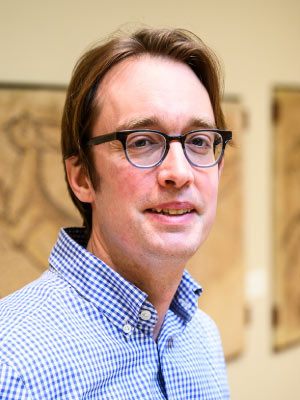
I am writing to introduce myself as the new director of CHE. It is a very great privilege to take over responsibility for an organization that plays such a vibrant role in the life of the Nelson Institute and the university, which exists at the cutting edge of interdisciplinary research in the environmental humanities, and which has been so important to me, personally, in my time at the UW.
The pandemic was difficult for CHE, which is based so markedly on a strong community ethos and on getting out there into the world. But director Anna Andrzejewski and assistant director Rachel Gurney did a wonderful job guiding us through these challenging times. In the last academic year, we returned to in-person events, with a highly successful graduate symposium and social gatherings in Tenney Park and Allen Centennial Gardens. We were also extremely happy — and relieved! — to be able to hold the Place-Based Workshop again, after a two-year hiatus. Our visit to Blackhawk Island in the Wisconsin Dells and to important locations in the corridor between the Dells and Madison was a tremendous success. The end of the semester, however, was tinged with sadness as we said goodbye to a founding member and stalwart of CHE, Bill Cronon. We wish him all the very best for his retirement and thank him for all he has done for CHE.
As we emerge from the pandemic, we have the opportunity not only to reestablish our regular roster of events and projects but also to reimagine how we can deliver them. Given the focus of our organization, I think it’s especially important that we consider opportunities to strengthen our commitment to environmentally responsible research and teaching. The pandemic forced us to innovate in creating new platforms for virtual collaborations: online conferencing tools enabled us to continue our series of monthly colloquia; the recent graduate symposium took place in a hybrid format. There is no reason we cannot continue to develop such models in subsequent years. Going forward, online or hybrid events — alongside in-person colloquia and gatherings — have the potential to connect the CHE community with scholars across the country and globally.
But that’s just one idea of the many we might pursue, and I’ll look forward to hearing from you about your own visions for CHE. Please don’t hesitate to contact me also if you’d like to know more about CHE, our plans for 2022–23, or opportunities to get involved — or indeed if you’d just like to chat. I’m looking forward very much to working with you and the rest of the CHE community in the coming academic year.
Will Brockliss
Director, Center for Culture, History, and Environment